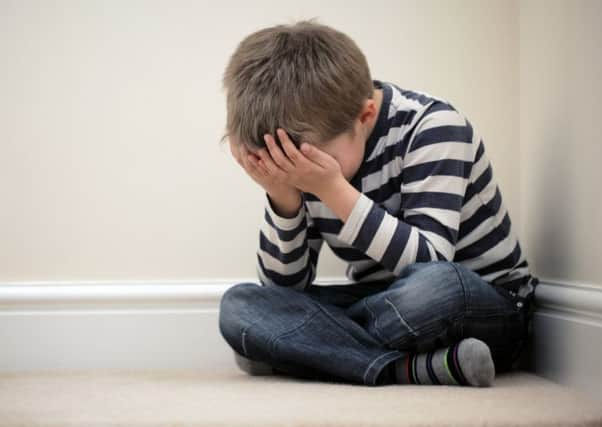Tradesmen '˜cautious' about signing up as child abuse whistle-blowers


The NSPCC last week urged plumbers, tradesmen and builders across Northern Ireland to sign up to new NSPCC training to help them spot children at risk of abuse and neglect.
The charity’s ‘It’s Your Call’ training is designed to give traders whose job involves visiting customers’ homes, the knowledge and confidence to recognise possible signs of child abuse.
Advertisement
Hide AdAdvertisement
Hide AdThe safeguarding training, which covers all types of abuse, also provides those taking part with guidance on who to tell if they have concerns about the wellbeing of a child they come across while working in or around a customer’s home.
It costs £30 to enrol on the online training course, a fee which would be footed by the individual wishing to take part or his or her employees.
Discounts are available for employers and organisations purchasing 10 or more courses.
A plumber, who did not wish to be identified, said he doubted if people in his profession would sign up.
Advertisement
Hide AdAdvertisement
Hide AdHe said: “I understand their desire to protect children from abuse and neglect, but I would say easily most plumbers won’t take this opportunity.
“I’d be very hesitant, very cautious about taking on such a role. You’re leaving yourself wide open. If you misinterpret the situation you wouldn’t have a leg to stand on.
“There’s a trust issue with people coming into your property, you’re breaching someone’s confidentiality when you start speculating about what might be going on in their home.
“In a case where the abuse is obvious, for example a parent punching their child, I’d say most plumbers would contact the police and tell them what they’d seen.
Advertisement
Hide AdAdvertisement
Hide Ad“This type of whistle-blowing is a little more complicated and puts the tradesman on a very sticky wicket.”
David Burns, NSPCC helpline manager for Northern Ireland, said: “Professionals who come into contact with people and their homes through their jobs, may see or hear things that others may not.
“While it is not their job to decide if what they have seen is abuse or not, it is their responsibility to talk to someone to discuss their concerns.
“Some may have already come across signs of child abuse or neglect and not known what to do about it.
Advertisement
Hide AdAdvertisement
Hide Ad“This course is designed to equip them with the knowledge and confidence to help them trust their instinct and report their concerns.”
Last year – 2016/17 – the NSPCC’s Helpline referred 563 calls and emails to Northern Ireland agencies such as the PSNI or children’s services, the majority of which were from people concerned a child was being abused or neglected.
Using voluntary donations, which make up around 90% of its funding, the NSPCC helps children who have been abused to rebuild their lives.
The organisation protects children at risk, and finds the best ways of preventing child abuse from ever happening.
Advertisement
Hide AdAdvertisement
Hide AdIts Childline service provides a safe, confidential place for children with no one else to turn to, whatever their worry, whenever they need help.
Children can contact the free helpline 24 hours a day, 365 days a year on 0800 1111 or by visiting www.childline.org.uk